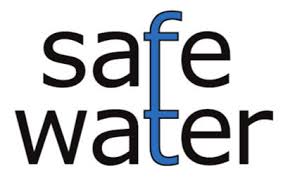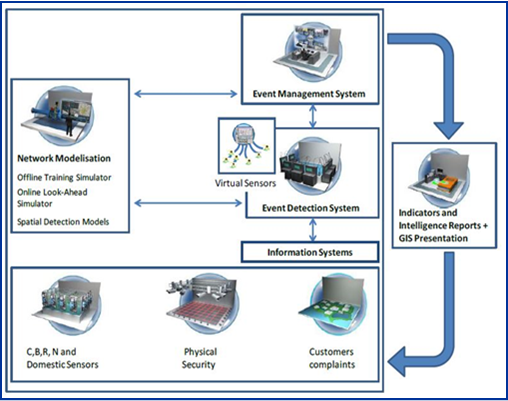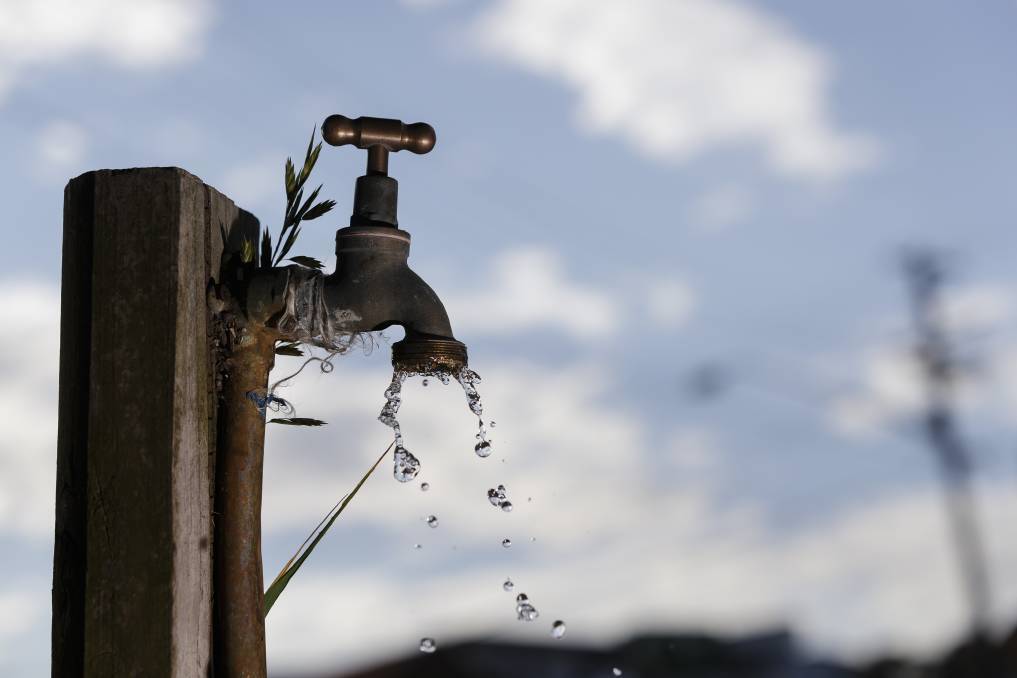Project goals
The security of drinking water is increasingly recognized as a major challenge for municipalities and water utilities. The safety and or security of drinking water can be threatened by natural disasters, accidents or malevolent attacks. In the event of a contamination water spreads rapidly and hence extensively before the problem is detected. The European FP7 project SAFEWATER aims at developing a comprehensive event detection and event management solution for drinking water security management and mitigation against major deliberate, accidental or natural CBRN related contaminations and in particular
- To improve the detection capacities available for event detection by developing new cost-effective C,B, and RN sensors to be used in conjunction with existing sensors, benchmarking their capacities, and analyzing their optimal placement location in the utilities network; in particular SAFEWATER will develop and validate an innovative concept with a broad network of low-cost sensors – “domestic sensors” (complementary to a set of sensors in strategic locations)
- To develop a technology platform able to: capture and analyze the data collected by the sensors and from other information systems, signal the level of alert, and give a full overview of the crisis to the responders by means of online look-ahead simulations to efficiently manage potential crises
 Fraunhofer Institute of Optronics, System Technologies and Image Exploitation IOSB
Fraunhofer Institute of Optronics, System Technologies and Image Exploitation IOSB 


